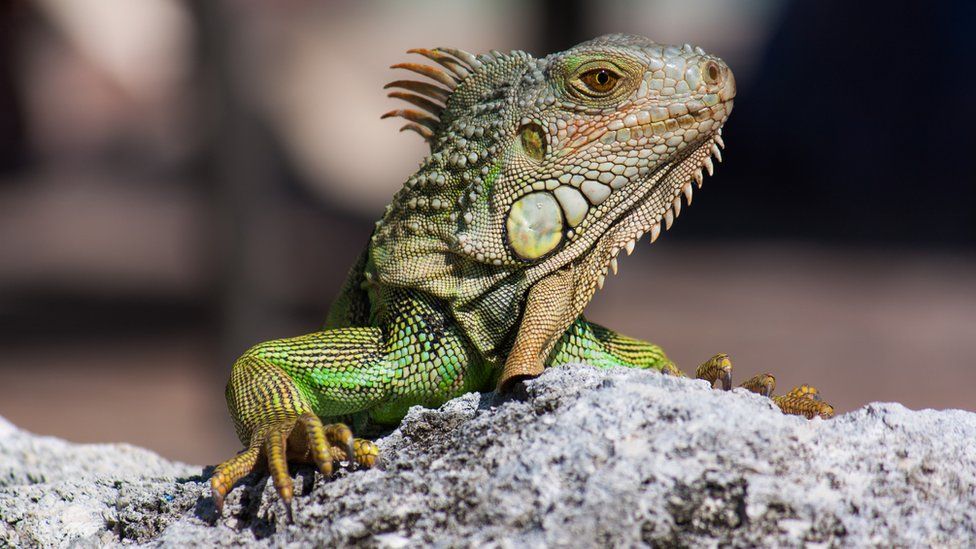Why are iguanas falling from trees in Florida?
- Published
- comments

Iguanas are cold-blooded reptiles that enjoy warmer climates
People living in Florida may run into a rather odd sight this weekend, weather forecasters have warned.
A big drop in temperature means frozen iguanas are expected to fall from trees in the US state.
It's because the reptiles, which are cold-blooded and often found in warmer climates, find it difficult to control their body temperature when the weather conditions get too cold for them.
Their bodies end up slowing down as a result, and the reptiles eventually lose control of their muscles. This causes them to lose their grip on the trees they live in, and then they often end up falling out of them.
It's far from a new phenomenon, although experts say people are hearing about and seeing it more often because iguanas don't originally come from Florida, but their numbers have increased in the state over the last 10 years.
Iguana numbers have risen in Florida over the last decade
Despite it being quite a weird occurrence, there's no need to be alarmed as the frozen iguanas are still very much alive.
They usually start moving again once temperatures have warmed up a bit.
However, falling iguanas can cause damage to cars and may even be dangerous if they hit people, so experts do advise that residents in Florida look up when they're outside in cold weather. The reptiles should also be left alone and not picked up or brought home.
Interesting iguana fact
Did you know iguanas are super speedy. The reptiles can reach a top speed of 21 miles per hour - that's faster than a lot of humans!
Why do reptiles like iguanas struggle with colder temperatures?
The blood in an iguana's body cools down in cold weather
The reason why iguanas, which are a type of lizard, have such a hard time in winter is because their bodies aren't adapted to it.
Florida is usually really warm, and iguanas are cold-blooded, which means their body temperature is dependent on what the temperature is outside.
The blood in their bodies cools down in cold weather, so they get sluggish at first, and as temperatures get lower, they freeze.
The iguanas do keep breathing, and their main body functions still work, but it's their body's way of protecting them until the temperature warms back up.
However, if the cold weather continues for a long period of time, a frozen iguana could eventually die.
- Published30 April 2022
- Published28 December 2022
- Published22 June 2023
